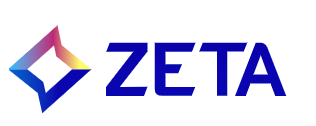This year has been a series of highs and lows for Zeta Global.
In October, the martech provider and data cloud, which went public in 2021, acquired email marketing and identity company LiveIntent for $250 million. That was a high.
Less than a month later, Zeta was the subject of two withering short seller reports claiming the company engaged in nefarious behavior, including artificially inflating its financial results and operating a so-called consent farm to deceptively collect consumer information.
That was a low.
But Zeta Global CEO David Steinberg says he “gets it.”
“If you look at the people coming after us, they’ve publicly disclosed that they’re shorting our stock – meaning they make money if our stock goes down,” Steinberg told AdExchanger. “All I can say is that we’re an ethical company, and we wouldn’t be able to service 40% of the companies in the Fortune 100 if we were playing games.”
Still, when a public company attracts unwanted attention, it always begs the question of whether there’s smoke when there’s fire.
In response to the short sellers, Zeta published a 15-page point-by-point rebuttal on its website that refutes what it says are false and misleading claims about its business.
“We’ve been public for 13 quarters, and we’ve beaten and raised our guidance every quarter,” Steinberg said. “We exist in a world where people take shots at you if you’re successful, but that won’t distract from our No. 1 job, which is executing for our clients.”
Steinberg spoke with AdExchanger.
AdExchanger: Zeta describes itself as an “AI-powered marketing cloud.” What does that mean, but without using any jargon?
DAVID STEINBERG: At a very high level, we’re a software company that uses data and artificial intelligence to help very large enterprises create, maintain and monetize their customers cost efficiently. That’s what we do.
Funny story, though. When we went public, our banner on the side of the New York Stock Exchange said, “Data plus AI equals intent,” and a few people that day asked me, “Who’s Al and why is he in charge of your data methodology?”
Who do you compete with?
Oh, you know, little companies like Salesforce, Adobe and Oracle. We also compete with The Trade Desk on programmatic and CTV.
Including LiveIntent, Zeta has acquired a company every year on average for the past seven years. Why so many acquisitions?
The companies we’ve bought have all been focused on our pivot in 2017 to put AI and data as native to the application layer.
But is one a year really so many? If you look at the number of acquisitions that most marketing platforms make, this isn’t atypical.
Still, it’s a lot of pieces, which could end up feeling like an island of misfit toys. Has everything been integrated?
We couldn’t have grown the business organically 42% last quarter, grown EBITDA by 49% and free cash flow by 92% if we weren’t integrated. And even if you take out political, we’ve grown the business 25% organically for the past three years – and that’s something we disclosed voluntarily. Nobody asked us to do it. There’s been some reporting that the SEC mandated us to, and that’s not true.
And we only acquire companies if the deal can be accretive to us the day we do it and if we’re able to integrate it into our architecture within 12 months. If it can’t be, we won’t buy it.
That all sounds rosy. So why are people being so mean to you?
Look, when a stock goes from eight to 30 and you have a CEO and a management team that owns a very large percentage of the company – we’re putting our money where our mouth is, and our stock doesn’t trade that in shares. It makes us an easier target to come after.
And a lie goes around the world in a moment, but the truth takes a long time to get out there.
One of the short seller reports accuses Zeta of engaging in “round trip transactions” with an ad tech company called Kubient. [Round tripping is a form of fraud that involves two or more parties exchanging assets back and forth to create the illusion of sales or revenue without any real money changing hands.] What is Zeta’s relationship with Kubient?
Kubient is a company we worked with prior to going public. We did a deal with them, but never recognized the revenue. They booked revenue on their side, we didn’t, and they got in very big trouble. The SEC came in and looked at them. We’ve publicly disclosed this because we wanted to be fully transparent.
If it turns out Kubient wasn’t booking revenue they should have been booking, we had nothing to do with that.
[Editor’s note: Zeta claims in its published rebuttal to the short sellers that it stopped working with Kubient before going public, recognized no revenue from Kubient in 2020, a “very immaterial amount” in 2019 and no revenue prior to that.]
In 2012, one of your former companies, InPhonic, which sold wireless services and devices online and is no longer in business, was charged by the SEC for a series of round-trip transactions to artificially inflate the company’s financial results. Do investors ever ask you about it?
They really don’t. It was 20 years ago. I’ve founded seven companies, sold four and taken two public. InPhonic had the wrong balance sheet going into the crash of 2007/2008. We burned money in the name of growth, which is what everybody did back then, and we borrowed a bunch of money to buy our stock back.
But we’d built a really good company. When the market crashed, a private equity firmed bought it and eventually ended up selling it to Walmart Labs for a lot of money.
As a result of the short seller reports, there’s now a law firm that’s trying to push for a securities fraud class action suit against Zeta. How are you responding?
We believe it will be dismissed early. They’ve simply cut and pasted a short report into their lawsuit – a short report with massive factual errors and lies in it. I don’t see how a court will allow something like that to even proceed.
If you could clear the air with a message for investors, your clients and for the mar tech and ad tech ecosystems writ large, what would it be?
Just that we’ll continue staying laser focused on solving our clients’ problems.
I have to say, we haven’t lost one customer because of all of this. We’ve done calls with all 25 of our largest customers, and they’ve been inquisitive. They want to talk about it. But it quickly moves to empathy, and by the end of the call, we’re often hearing, “God, we’re sorry this is happening to you.”
We know this is all part of the game, and the ones coming after us might benefit in the short run. But we’re going to play the long game on execution.
This interview has been lightly edited and condensed.











